MagazineHRAI



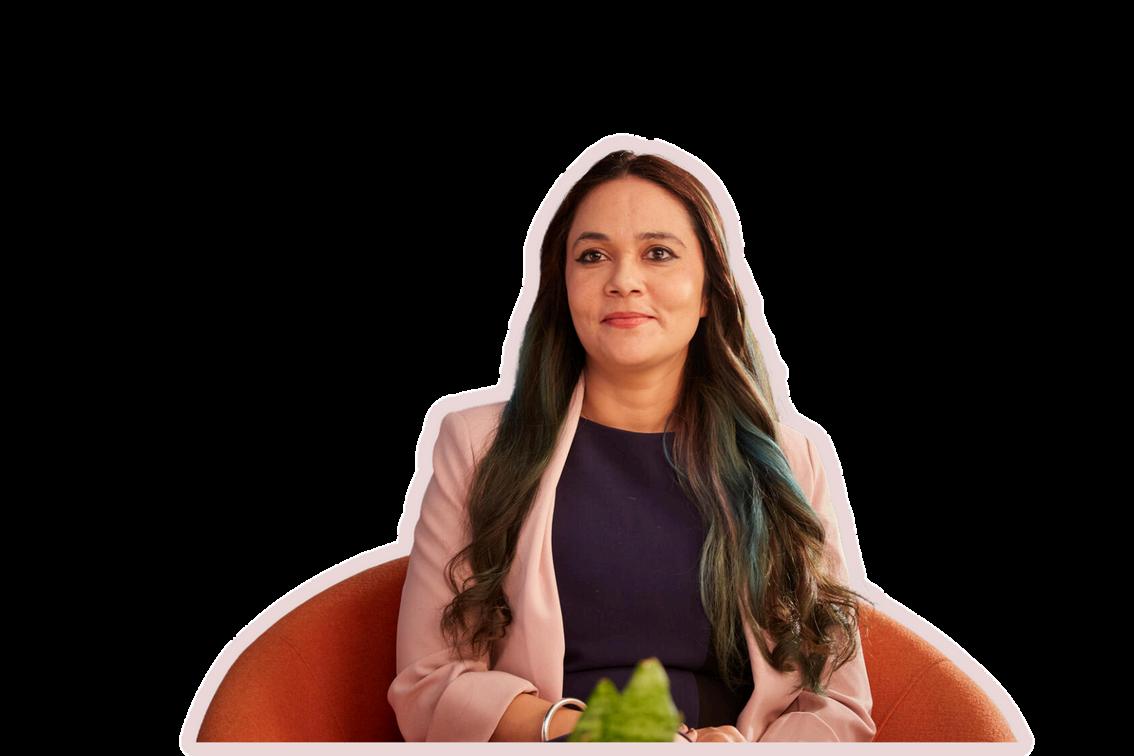


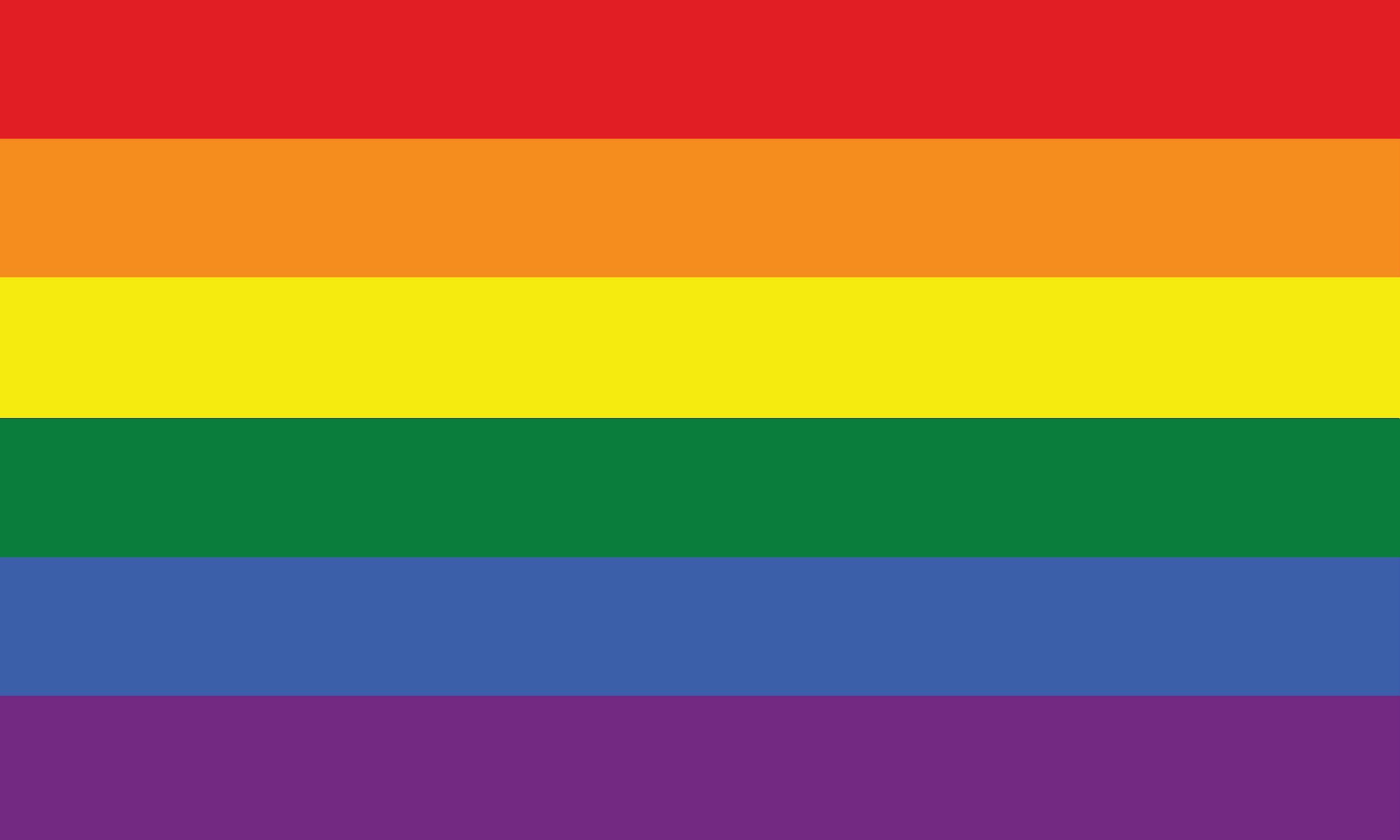
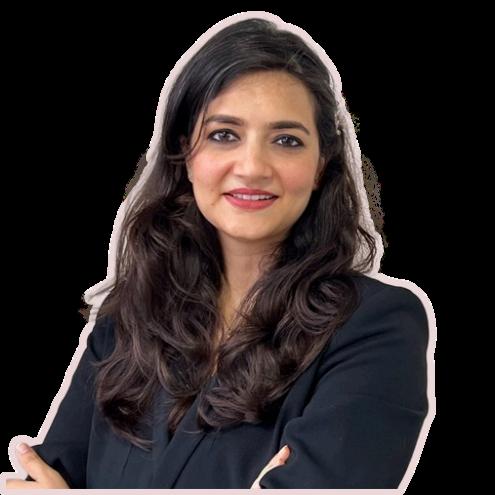












HRAI firmly believes in the power of teamwork and the value it brings. When diverse talents and perspectives come together, something extraordinary happens. The collective synergy we create goes beyond what any individual can achieve alone and together we see the potential to make a lasting impact on the world.
In a world where inclusion is often reduced to a checkbox, this edition invites us to look deeper beyond statements and symbols, towards the lived experiences that define true belonging.
At the heart of Pride is not just visibility, but voice Not just presence, but power This edition of the HRAI Magazine seeks to honor that spirit by spotlighting real stories, bold policies, and everyday practices that go beyond tokenism and instead create spaces where authenticity is not just accepted, but celebrated.
Whether it's a leader rethinking workplace culture, an organization shifting policy to protect dignity, or individuals standing up for each other in quiet, powerful ways the contributions in this issue remind us that belonging isn’t a destination. It’s a culture we build, moment by moment, together
We hope these narratives spark reflection, dialogue, and above all action
Happy Reading!

13
SHASHWATI P
INCLUSION & CULTURE CHAMPION
SREYA GHOSH OBEROI
SENIOR DIRECTOR, INCLUSION LEAD - INDIA, CAPGEMINI ANKIT BHUPTANI (TEDX SPEAKER)
10 16 DR. ANKITA SINGH, FOUNDER, HR ASSOCIATION OF INDIA ANWESH KUMAR SAHOO (TOP GRAPHIC DESIGN VOICE)
“PUZZLE WITH PRIDE”
PARTICIPATE TO WIN A GIFT VOUCHER OF INR 5000
THIS SECTION CAPTURES KEY MOMENTS, INSIGHTS, AND EXPERIENCES FROM NOTEWORTHY EVENTS ORGANIZED BY LEADING INDUSTRY PLAYERS.
SUMIT AGARWAL LINKEDIN TOP VOICES

RUKHSAR JULEKHA TALENT ACQUISITION LEADER
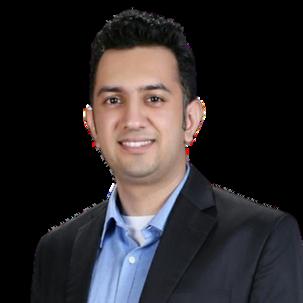
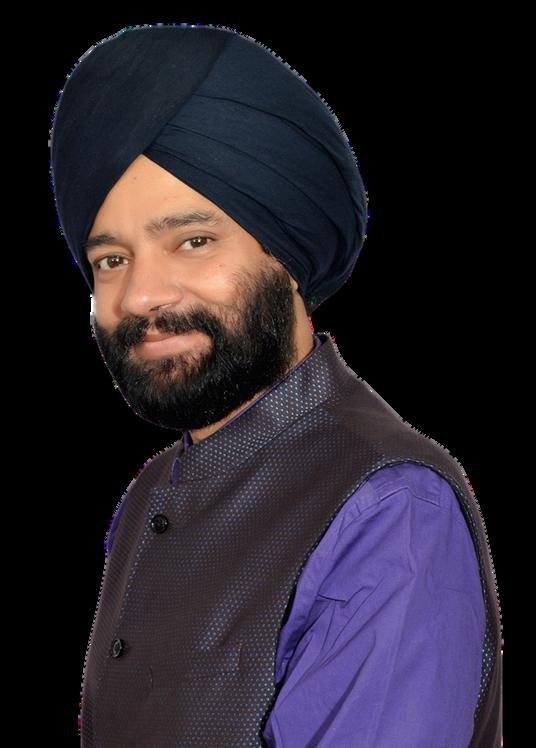
A NEWS INITIATIVE SPOTLIGHTING RECENT APPOINTMENTS AND KEY LEADERSHIP MOVEMENTS IN THE CORPORATE WORLD. 19 38
15
23
CA ABHAY MAHESHWARI, FOUNDER & CEO, ASM WEALTH
HARJEET KHANDUJA, SVP- HR, JIO


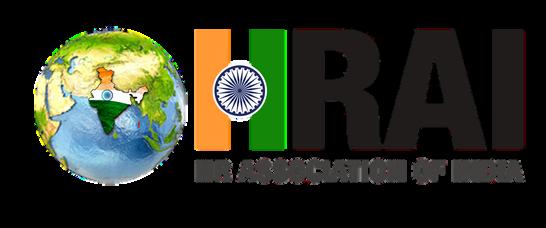
e HR Association of India (HRAI), founded in 2020 is an esteemed non-profit organization that has been playing a pivotal role in shaping the HR landscape in India. Their primary focus is on exploring, discussing, and promoting the latest business scenarios, market trends, change management, and leadership in the HR industry. HRAI is dedicated to creating a community of professionals, learners, and mentors who share their insights and learn from each other to elevate the standard of HR practices in the country
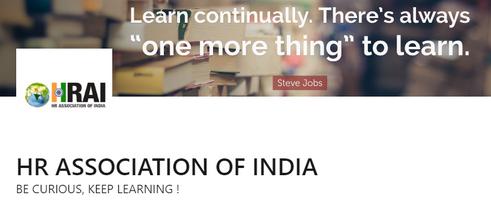
HRAI's success is attributed to its commitment to excellence and tireless efforts in facilitating interactions between HR professionals and subject matter experts. Through its initiatives such as panel discussions, masterclasses, one-on-one talk shows, and Q&A sessions with thought leaders, HRAI provides a platform for professionals to gain in-depth knowledge and practical solutions that can be applied in real-time.
In addition to their educational initiatives, HRAI also recognizes organizations' best practices and individual contributions through awards and conferences. These events celebrate the achievements of exceptional professionals and organizations that have made significant contributions to the HR industry in India. Over the years, HRAI has featured more than 1,000 experts and leading minds in the fields of HR, IT, Marketing, Finance, and more, making it a hub for learning and networking.
For HR professionals in India, HRAI offers unparalleled opportunities to connect with like-minded peers, learn from experts, and gain recognition for their hard work and achievements By joining HRAI, HR professionals can stay updated on the latest trends, best practices, and strategies that can help them take their careers to the next level.
HRAI, founded by Dr. Ankita Singh, drives industry initiatives and organizes prestigious awards for organizations, emerging leaders, and trailblazing women leaders Notable participants include Hindustan Unilever, Birlasoft, Biocon, Lenovo, IHG Hotels, Volvo and more..
Our commitment to excellence is reinforced through partnerships with the Great Managers Institute and top 100 great managers, who have taken masterclasses and featured in Forbes Magazine.
Elite leaders like Dr. TV Rao, Harjeet Khanduja, and Prasenjit Bhattacharya have graced our one-on-one talk shows, enhancing our members' knowledge base.
Our article initiative showcases thought-provoking articles by eminent leaders from organizations like BCCL, EY, Max Life Insurance, SAP, Kotak life, Bajaj Energy, TimesPro, Jio, Welspun Group, Great place to work and Accolite Digital.
The 23 Of 2023 and 24 of 2024 Initiative recognized exceptional leaders and entrepreneurs based on a predetermined theme. Featured leaders include those from organizations Eros Now, Adani Group, Future Generali, Yes Securities, Timezone, Dabur, Yatra, JSW, KPMG Global Services and more. The list also featured notable public figures/Sharktank Jury: Ghazal Alagh, Ritesh Agarwal, Deepinder Goyal and Amit Jain:
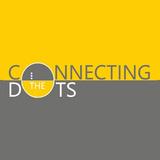
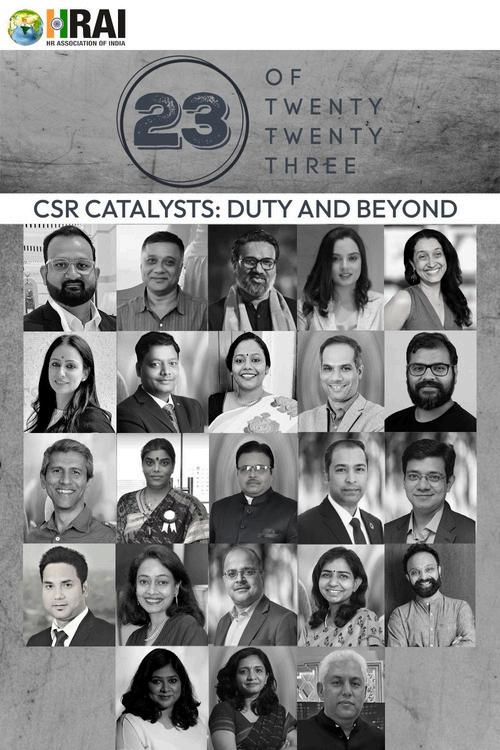
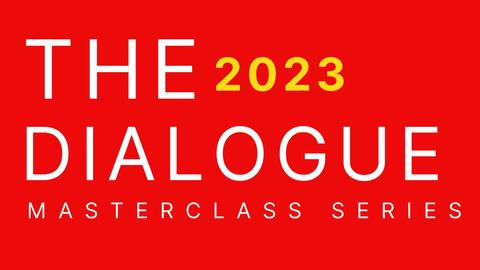


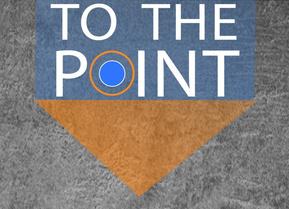






There is something profoundly intimate about filling out a bank form. The careful boxes for "Name," "Address," "Nominee" these mundane bureaucratic rituals are, in their own way, acts of recognition They say: you exist, your relationships matter, your future is worth protecting. On August 28, 2024, when India's Ministry of Finance quietly issued an advisory allowing LGBTQ+ individuals to open joint bank accounts and nominate their partners as beneficiaries, it may have seemed like bureaucratic housekeeping But for someone like me, who has spent over a decade fighting for our community's visibility, it felt like a seismic shift disguised as paperwork.
I know this because I was there not just as an observer, but as a participant in the community consultations hosted by the Government of India that made this possible Sitting across from secretaries from the Ministries of Home Affairs, Social Justice, Law, Women and Child Development, and Health, I watched career bureaucrats grapple with questions they had never been asked to consider: What does family mean when the law doesn't recognize your partnership? How do you build economic security when official forms don't have boxes for your reality?
These conversations brought me back to December 2013, when I stood with my community at Mumbai's Humsafar Trust, waiting for the Supreme Court's judgment on Section 377 The law that criminalized our existence hung in the balance, and when the verdict went against us, the disappointment was crushing. But something unexpected happened in that moment of collective grief a clarity about what real change looks like. It doesn't always come from courtrooms or legislative halls Sometimes it comes from the patient work
of making space for yourself in a world that hasn't quite figured out how to see you yet. That realization led me to television studios, where I spoke about our community's pain, but more importantly, it led me to trains and public spaces, where I began conducting talks about LGBT rights and our constitutional protections I discovered that speaking directly to people about our fundamental rights as citizens explaining how equality and dignity apply to all Indians regardless of sexual orientation could shift perspectives in ways that abstract legal arguments could not. When the Supreme Court finally decriminalized homosexuality in 2018, partially validating Section 377, it felt like vindication of those countless conversations. People who had never considered LGBT rights as constitutional issues suddenly understood that we weren't asking for special treatment we were claiming our place as equal citizens under the same Constitution that protects all Indians.
This experience taught me something crucial about social change: accepting yourself is fifty percent of the journey toward acceptance by others. When you embrace your identity fully, the world has little choice but to reckon with that reality. But the other fifty percent creating the structures and spaces where that acceptance can flourish requires different skills entirely
This is why those seemingly mundane administrative changes matter so much Joint bank accounts, shared ration cards, insurance beneficiaries these aren't just policy victories. They're the infrastructure of belonging. They say to LGBTQ+ Indians: your relationships have economic reality, your partnerships deserve protection, your futures are worth planning for While we continue our legal battle for marriage equality
through a curative petition in the Supreme Court, these incremental changes create the practical foundation upon which full recognition can be built.
The parallel to corporate DEI work is striking. Having consulted with companies across the globe on building inclusive cultures, I see the same pattern: the most transformative changes often happen not through grand diversity proclamations, but through quiet adjustments to everyday processes. When a company starts providing meeting agendas in advance to support neurodivergent employees, everyone benefits including busy colleagues who appreciate the clarity. When organizations embed inclusive practices in their talent processes rather than treating diversity as an add-on, they create cultures where belonging becomes natural rather than performed.
Yet both movements face similar challenges. Corporate DEI confronts political backlash and budget pressures; LGBTQ+ rights in India navigate cultural resistance and implementation gaps In both cases, critics declare the work dead or dying. But this misses the deeper transformation happening beneath the surface Data shows DEI efforts actually increased in 2024, even as the acronym became less fashionable Similarly, while marriage equality remains our next constitutional battle through the curative petition currently before the Supreme Court, the bureaucratic recognition of our relationships advances steadily building on the foundation laid by the 2018 decriminalization
The key insight from both contexts is that sustainable change requires patience with incremental progress. My own journey from closeted consultant to openly gay activist to DEI practitioner has taught me that

revolution and evolution aren't opposites they're partners. The revolution is in deciding to live authentically despite the risks The evolution is in building systems that make such authenticity possible for others Today, when I help organizations create inclusive cultures, I draw on lessons learned in those government ministry meetings and railway conversations alike. Real belonging isn't achieved through perfect policies or flawless diversity statements. It's built through the accumulation of practices that recognize human dignity in all its complexity one bank form, one inclusive hiring process, one authentic conversation at a time.

The most transformative changes often happen not through grand diversity proclamations, but through quiet adjustments to everyday processes.
As India's LGBTQ+ community continues its legal struggle while celebrating administrative victories, and as corporate leaders navigate DEI's evolution from trend to embedded practice,
the same truth emerges: lasting change happens when we transform not just laws or policies, but the everyday structures through which people build lives together. The work continues, quietly but persistently. This is not retreat; it is maturation And maturation, unlike revolution, is measured not in moments but in decades of patient progress.


I often say I live two lives. One where I obsess over mipmaps, memory caches, and Unity prefab optimization And another where I paint brown queer bodies in opulent jewelry and flowing dhotis, dancing to their own rhythm. Somewhere in between those two worlds is me. Anwesh Sahoo. A technical artist, a storyteller, and a proud queer person trying to build safer, softer spaces wherever I go
Belonging wasn’t something I found easily. I grew up being told I was too much Too soft Too expressive. Too different. But it was in being all of those things that I started to build a language for myself. First through drawing Later through performance And eventually through digital tools. From sketching Odissi dancers in my childhood, to now creating complex shader systems and leading game art pipelines, my journey has always been about reclaiming space where I was once asked to shrink.
In tech, queerness can sometimes be quietly brushed aside, or tokenized in corporate posts during Pride month For someone like me, who enters these spaces as a gay man, sometimes, there isn’t an option to blend in. I remember debugging a crash report in Unity all day long in the office, and then coming back home and finishing a watercolor piece from my Dancing Men series, a visual rebellion where brown queer men in all shapes, skin colors and sizes, fly, fall, and feel without shame.
That duality is where I find power. Both sides feed each other My queerness makes me a more empathetic collaborator in my game development teams. My technical discipline helps me render my artistic visions with more precision and poetry.

and Effeminared Under The Lucky Star aren’t just art to me. They are love letters to queer joy and rebellion. They are my way of carving out visual languages where softness is celebrated. Where men dance without apology. Where brown queer bodies take up space And as a Lead Technical Artist, when I mentor juniors or optimize visual pipelines, I know I am also shaping what inclusivity can look like behind the scenes.
Belonging, to me, isn’t just about being seen. It is about being celebrated in your fullest form It is when someone on my team says, “Hey Anwesh, your art helped me feel more myself ” It is when my character design gets to wear a rainbow taahiya and no one questions it. It is when I no longer have to choose between being the technical one or the queer one. I get to be both. Fully.

My queerness makes me a more empathetic collaborator in my game development teams.
That is what Pride means to me now Not just tolerance. Not just inclusion. But thriving. In all my colours My contradictions My chaos.
Because we have always belonged We are just reclaiming the frame now.

It was just another Monday morning when Priya, a high-potential manager at a multinational firm, received feedback that her promotion was being held up for reasons unrelated to her performance She had exceeded targets, led a key digital transformation project, and scored top marks in 360-degree reviews Yet, her promotion letter remained stuck in an invisible pipeline When she finally asked why, a senior executive casually said, "We already promoted a woman from your division last quarter "
This wasn’t an isolated story. Across boardrooms and HR cabins today, DEI (Diversity, Equity, and Inclusion) is undergoing a quiet but seismic shift. What started as a bold movement to correct systemic imbalances is now increasingly tangled in optics, performative actions, and unfortunately, political resistance In some regions, DEI is being rebranded or even sidelined to avoid controversy. But in the process, the soul of the movement fairness is getting lost.
Many organizations fall into the trap of symbolic diversity They showcase curated diversity panels, post #InclusionMatters graphics on LinkedIn, and celebrate International Women's Day with flair. But ask employees from marginalized groups if they feel heard, respected, and represented every day, and the answer is often a quiet " no "
True inclusion is not a PR campaign It’s in the micro-decisions: who gets to speak in meetings, who gets constructive feedback, who is mentored, who is forgiven for mistakes, and who is consistently overlooked
DEI, when treated as a checkbox, does more harm than good. It creates resentment, feeds tokenism, and reinforces the very bias it aims to dismantle.

Organizations exist in societies.
And fairness, access, and equity are not radical ideas—they're good business.
Recent political and social developments in parts of the world have caused DEI to be seen as a partisan agenda Organizations are being forced to defend their inclusion strategies against scrutiny that misrepresents their intent Some leaders, fearing backlash, are quietly cutting down on DEI efforts or renaming them under less "charged" terms.
But let's be clear: DEI is not a political stance. It is a leadership responsibility. Organizations exist in societies And fairness, access, and equity are not radical ideas they're good business Companies that embed diversity and inclusion in their DNA outperform those that don’t, not just in innovation and profitability, but in trust, retention, and resilience.

Dr Ankita Singh is the CPO & Board Director, CIGNEX & Relevance Lab With 22+ years in HR, primarily in the ITES sector, Ankita has driven transformation through performance-driven practices and inclusive culture. At CIGNEX, her leadership helped the company earn multiple “Great Place to Work” certifications (2017–2021) She has been recognized as “Woman Leader of the Year” by The Times of India Group and featured in Forbes India’s “Top 100 Managers.” Ankita holds an MBA in HR+IT, an Executive MBA from SCMHRD, and a Ph.D. in Management. A respected voice in the industry, Ankita blends strategic insight with a passion for people development and culture building



So how do we move from symbolic DEI to strategic, sustainable fairness? We need to be AUTHENTIC:
Act with intention – DEI must be intentional, not incidental. Define what inclusion means for your organization and design accordingly.
Uncover bias – Use data and dialogue to spot hidden inequities in hiring, promotions, and recognition.
Train inclusively – Equip leaders and managers with tools to lead across difference and foster psychological safety
Hold leaders accountable – Tie DEI outcomes to performance reviews and leadership KPIs.
Embed fairness in systems – Implement structured processes like blind hiring, diverse panels, and equitable pay practices.
Normalize conversations – Foster environments where discussions on identity, bias, and allyship aren’t taboo but routine.
Track real impact – Look beyond vanity metrics; measure belonging, equity, and lived experience
Inspire through stories – Share internal narratives of inclusion that reflect values, not just victories
Consistently commit – DEI isn’t a quarterly theme; it’s a long-term investment in culture
At one mid-sized tech company I work with, the DEI lead started with no fancy title or million-dollar budget Instead, she quietly began conducting listening sessions with employees across levels She uncovered subtle but systemic gaps: women were returning from maternity leave but not being assigned key projects; LGBTQ+ employees were self-censoring to "fit in." Instead of
rolling out a grand strategy, she embedded change in daily rituals: anonymous project nominations, inclusive language in communication, and regular manager nudges
Within a year, employee engagement scores improved by 23%, and more importantly, the feedback shifted from, "We have a DEI initiative," to, "We feel like we belong "
Real change doesn’t always need a spotlight. It needs intention, action, and consistency
HR has never been more powerful or more accountable We sit at the intersection of policy, performance, and people. The responsibility to turn DEI into something more than optics sits squarely on our shoulders.
But this isn’t a burden it’s an opportunity. We get to build organizations where fairness isn’t a political liability but a cultural asset Where diversity isn’t something we count, but something we celebrate Where inclusion isn’t a strategy, but a way of working.
DEI may be in a political crosswind, but fairness will always have a place in the future of work The organizations that thrive will be the ones that choose courage over convenience and consistency over campaigns
Let us not wait for another Priya to walk away wondering what more she could have done. Let us build workplaces where no one needs to ask for fairness because it's already built in.


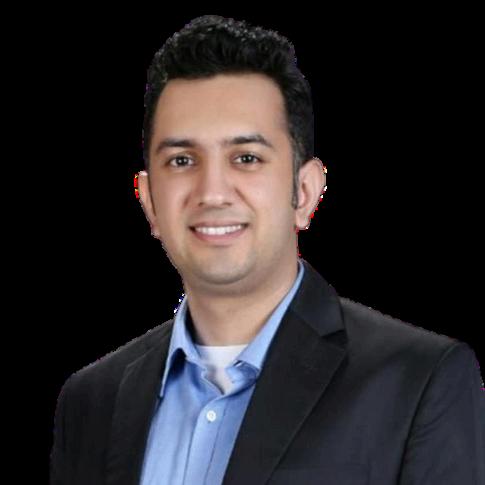

About the Author
CA Abhay Maheshwari, Founder & CEO of ASM Wealth, is a Chartered Accountant and MBA from Indiana University in the US. He has over a decade of experience in the IT & Financial Services Sector and international experience having worked in the Private Equity space in Singapore Abhay has been an active investor since his teenage years and already seen 2 full market cycles. Along with his team, he manages over ₹150 crore in investments across Mutual Funds and Direct Equities Abhay's goal is to empower people by teaching them about personal finance so that they can choose the right strategies & advisors, while not getting carried away by false promises, narratives and misselling.
Abhay can be reached at 9892696758/9987675877 Abhay asmwealth@gmail com https://www linkedin com/in/abhay-maheshwari/
A payslip can tell you someone ’ s salary. But it doesn’t tell you if they hesitate to plan for the future because their version of “family” doesn’t fit traditional templates
For LGBTQIA+ professionals, financial choices are often entangled with deeper emotions stemming from their names being excluded from inheritance, from policies written with assumptions and from questions asked with judgment
The challenges are often invisible yet deeply structural:
Trouble naming partners as nominees across insurance and bank accounts
Lack of legal clarity around wills and property rights
Hesitation to approach financial institutions due to past bias
Family estrangement leading to reduced access to safety nets
The emotional cost of being overly cautious or mistrustful when it comes to money
These are systemic fractures in a civilization where universal acceptance was the pre-colonial norm.
As organizations, we can help shift this narrative From normalizing diverse family structures in policy to creating safe spaces for money conversations, we can contribute to a workplace where financial confidence is not a privilege, but a shared right
It’s not just about being included; it’s about being enabled. Enabled to plan boldly, invest strategically, and build wealth confidently.
Because here’s the truth: wealth shifts power When LGBTQIA+ individuals rise to become business leaders, HNIs and billionaires, society will have no option but to acknowledge, accommodate, and amend. It may not be fair, but it is real.
And while not everyone survives the trauma, some must channel it To not stop at acceptance, but to stand out To see financial independence not as a finish line, but as a foundation to reshape the world.
Because belonging happens when money becomes a tool of choice, not just a symbol of struggle!





Pride is more than just a celebration; it is a powerful statement of self-affirmation, dignity, and resistance against historical erasure. In India, the journey of LGBTQ+ rights has been deeply intertwined with the complex layers of history, culture, and colonial influence. While modern struggles for inclusion in legal and social frameworks are critical, the ultimate aspiration must move beyond mere inclusion - towards genuine belonging.
Long before the colonial era, India had a rich tradition of gender and sexual diversity, reflected in its mythology, scriptures, and temple sculptures The Khajuraho temples, the Sun Temple of Konark, many temples in South India vividly depict same-sex intimacy and fluid gender identities, challenging the notion that queerness is a Western import. The existence of the hijras is documented, with references in Mahabharata and other texts showcasing how gender nonconformity was historically recognized and respected in Indian society.
Ancient texts also acknowledge a spectrum of desires beyond the binary, further establishing that queerness was never alien to Indian traditions. Deities such as Ardhanarishvara - a composite of Shiva and Parvati symbolize the merging of masculine and feminine energies, reinforcing the idea that gender is not rigid but a divine continuum.
The British rule brought with it Victorian morality, legal constraints, and an attempt to erase India’s existing acceptance of gender and sexual diversity. In 1861, the British introduced Section 377 of the Indian
Penal Code, criminalizing "carnal intercourse against the order of nature," thereby legally stigmatizing LGBTQ+ identities for over a century. This law did not just prohibit homosexuality; it systematically entrenched shame and secrecy within Indian society.
Colonial rule imposed a binary structure that marginalized the hijra community and enforced rigid gender roles, turning what was once acknowledged into something forbidden
Over time, India’s own cultural acceptance eroded, and generations were raised under the shadow of prejudice stemming from foreign ideologies rather than indigenous traditions. We continue to grapple with the remnants of colonial ideology, where deeply ingrained Victorian morality still dictates societal attitudes toward LGBTQ+ rights, creating barriers to full acceptance.
The British themselves have since evolved in their perspective on LGBTQ+ rightlegalizing same-sex marriage in 2014 and overturning colonial-era restrictions. A notable example is the UK's Gender Recognition Act of 2004, which allows transgender individuals to legally change their gender, reflecting a broader societal shift toward inclusivity.

While modern struggles for inclusion in legal and social frameworks are critical, the ultimate aspiration must move beyond mere inclusion - towards genuine belonging.


Today, India stands at a crossroads. The decriminalization of Section 377 in 2018 was a landmark victory, but legal recognition is just the beginning. Inclusion - being allowed within the framework of rights - is necessary Belonging is the ultimate goal. True belonging means creating spaces where LGBTQ+ individuals do not just exist but thrive, without fear, shame, or marginalization
Belonging requires active engagement from all sectors of society - families, workplaces, educational institutions, and religious spaces - to unlearn biases and return to an ethos of acceptance. It involves reintroducing queer narratives into mainstream discourse, celebrating India’s rich heritage of gender fluidity, and integrating LGBTQ+ perspectives in policies that go beyond legal rights and into cultural affirmation
The battle for pride in India is not about Western validation but about reclaiming what was always ours - a legacy of coexistence, respect, and love By celebrating Pride, we do not simply push for inclusion within an existing system; we demand to be seen as an inseparable, valuable part of India’s historical and social fabric.
As India steps forward, it must look backnot in shame, but in recognition that the foundations of belonging were always present. It is time to unshackle ourselves from imposed prejudices and embrace the diversity that has always been at the heart of Indian society. Pride is not just a movement - it is a homecoming.


A news initiative spotlighting recent appointments and key leadership movements in the corporate world.


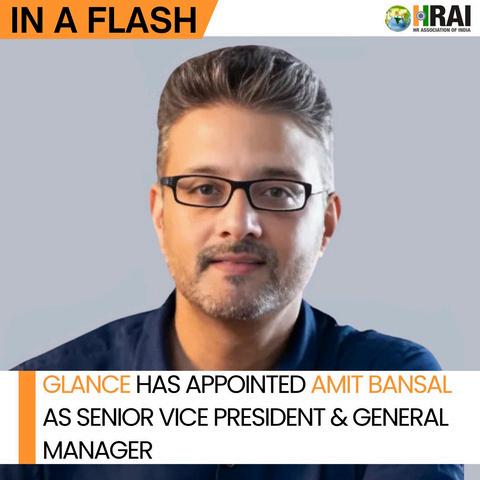
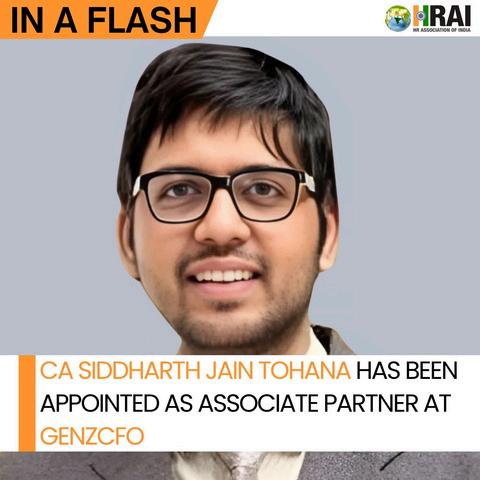
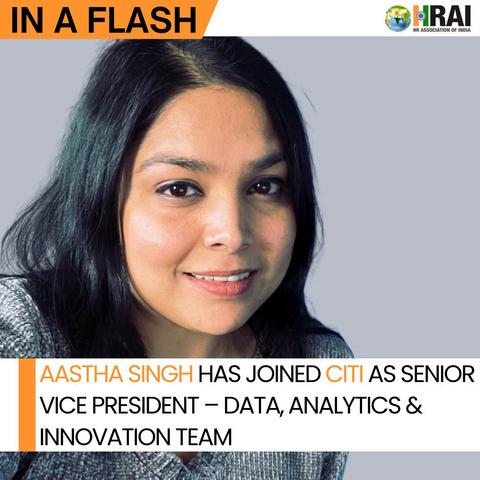
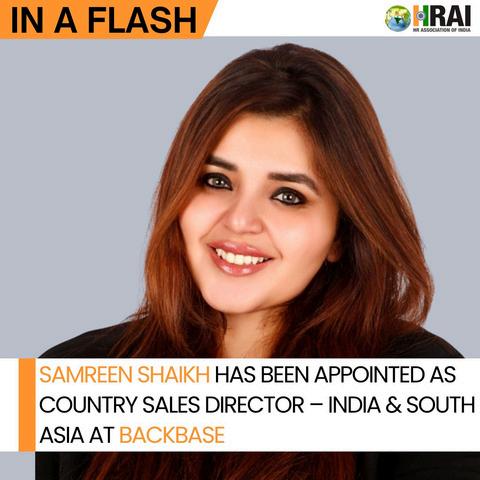


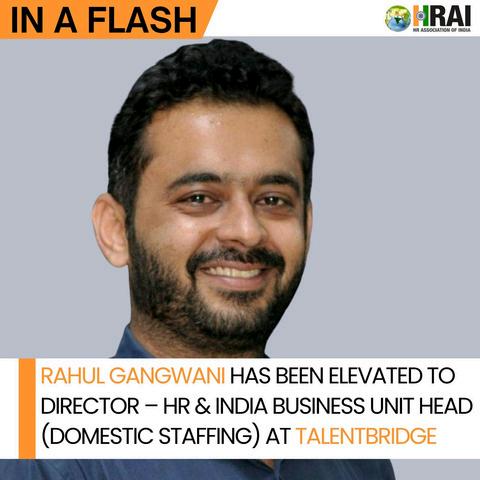

Inclusion is no longer a choice; it is a business imperative. In today’s dynamic world of work, organizations that actively embrace inclusion in all its forms don’t just do the right thing they do the smart thing At the heart of this is the understanding that when individuals feel seen, respected, and valued regardless of their sexual orientation or gender identity they thrive. And when people thrive, so does innovation Investing in an inclusive workplace culture is a reflection of organizational values and a strategic driver of performance, creativity, and long-term growth.
Guided by the same spirit, Capgemini is committed to creating an inclusive and sustainable future for people, society, and the planet. Our initiative, ‘Take Pride, Take Action’, highlights our milestones, progressive policies, educational efforts, and collaborative culture aimed at supporting the LGBTQIA+ community and its allies. As we observe Pride Month, we reflect on the significant and meaningful path we have traversed to advocate for and support our LGBTQIA+ colleagues
Leadership Commitment: Our leaders are strong advocates for creating a supportive environment where LGBTQIA+ colleagues belong We have commitment, right from the India Country Board, ensuring impactful championing of our initiatives across the organization.
Policies: We believe that inclusive policies are fundamental to creating an inclusive work culture. We constantly benchmark and enhance our policies against the industry’s leading best practices and evolve on our journey.
Over the years, we have successfully launched initiatives such as gender transition guidelines, same-sex partner insurance, gender affirmation surgery coverage, a 30-day recovery leave postsurgery, and all-gender washrooms across Capgemini offices.
Employee Network Group (ENG): Our award-winning ENG, OUTfront is dedicated to promoting inclusion and visibility for the LGBTQIA+ community. As a champion of advocacy, allyship, and empowerment, OUTfront drives programs through community engagement, social events, and various awareness sessions, creating an inclusive workplace.

WHEN
Since its inception in 2017, OUTFront has grown and evolved We are proud of where we are today because of OUTFront, and our journey continues This ENG has been instrumental in designing and implementing interactive sessions with the objective of understanding LGBTQIA+ identities, fostering allyships, and offering guidelines on inclusive communication Regular sessions are arranged for all our People Managers and colleagues in Talent Acquisition and HR teams.
Focused Efforts for LGBTQ+ Inclusion: We are committed to adapting to a culture of LGBTQIA+ inclusion through various initiatives: Sensitization Sessions: Encouraging employees to embrace all diversities in the workplace.
Sreya Ghosh Oberoi is the Inclusion Lead for Capgemini India, where she drives inclusive workplace strategies across business units focusing on improving gender balance in leadership and fostering inclusion of people with disabilities and the LGBTQIA+ community With over 22 years of experience in Operations and HR across industries like IT-ITES, oil & gas, manufacturing, and services, Sreya brings rich and diverse expertise Prior to Capgemini, she led D&I and employee engagement at the JSW Group At Sodexo, she headed Diversity & Inclusion for the APAC region, covering China, Singapore, Indonesia, Malaysia, the Philippines, Thailand, Australia, and India She also served as Co-chair of Sodexo’s Global Disability Taskforce and was an HR Business Partner for the APAC healthcare business.
Sreya holds a management degree in HR from IMT Ghaziabad, is a certified Six Sigma Green Belt, and has earned a D&I certification from Cornell University.

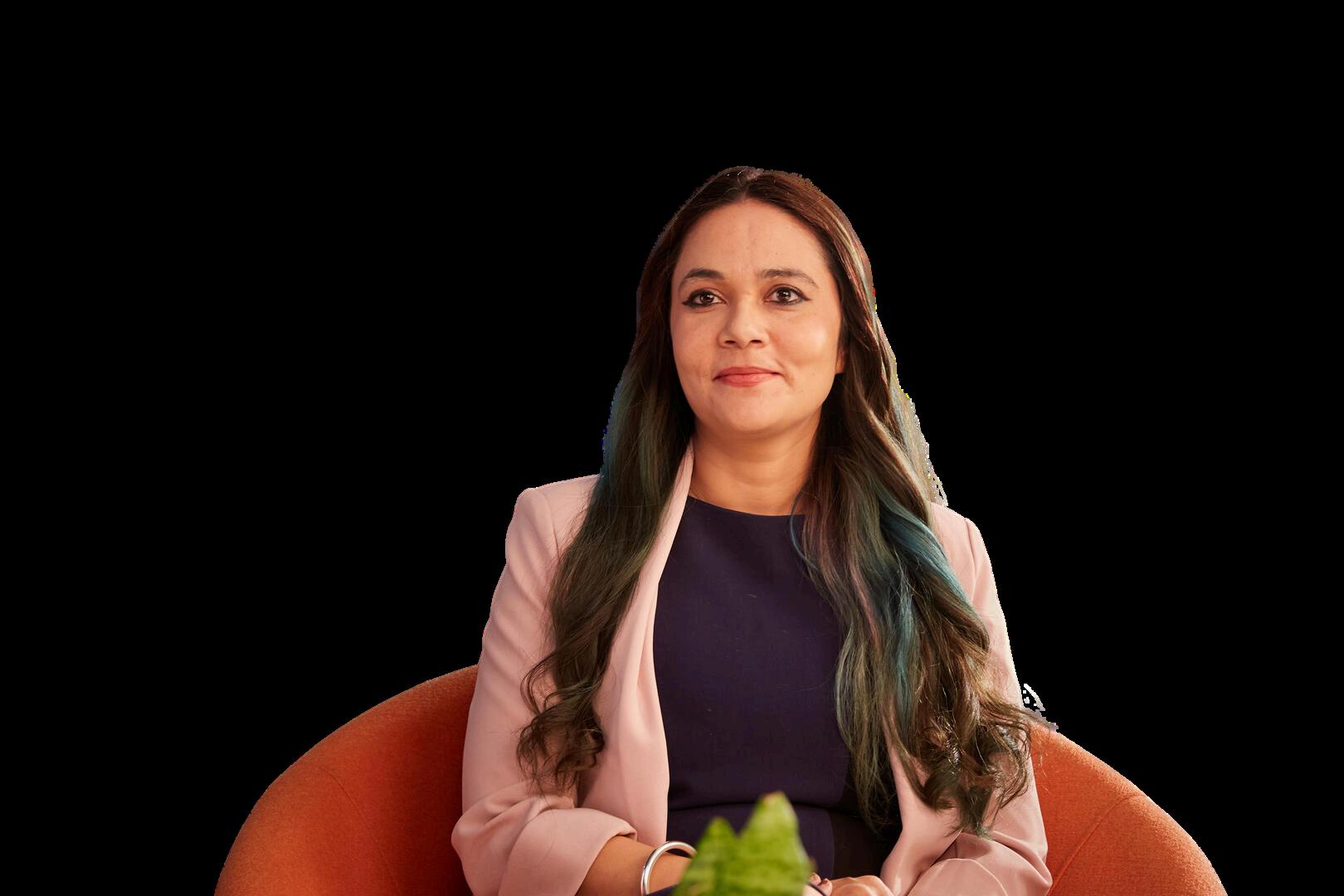


HR Policy Reviews: Regularly updating policies to use gender-neutral terms like ‘partner’ instead of ‘husband’ or ‘wife’.
Non-Discrimination: Ensuring fair treatment for LGBTQIA+ employees in daily operations and performance appraisals.
Safe Platforms: Providing forums for discussions on LGBTQIA+ inclusion via podcasts and inclusion circles led by leaders.
Community Outreach and Awareness Programs, All Through the Year:
Capgemini observes Pride Month with a range of events, celebrating its LGBTQIA+ colleagues as well as the community Throughout the year, we host ‘Human Library’ sessions, bringing in inspiring external speakers to foster awareness, empathy, and allyship. We have extensive strategic associations with leading organizations to evaluate, improve, and receive recognition for our LGBTQIA+ inclusion efforts. Through these collaborations, we have received insights to improve our programs. We actively observe various days of significance such as the Pride Month and the day of decriminalization of section 377 through awareness campaigns, employee engagement activities, and participation in external summits
At Capgemini, inclusion is not a checkbox, it is a continuous journey of transformation. Our commitment goes beyond representation to reimagining the fabric of our workplace culture. By fostering open dialogue, challenging biases, and embedding equity into every level, we aim to build a truly inclusive community. When every colleague feels empowered to bring their whole self to work, we unlock the full potential of our people and with it, the future we want to build.


Once upon a time, in the 1990s, there was an H leader called Raj While most HR leaders wer buried in files and policies, Raj cared abou something deeper People, their struggles, the silent desire to feel accepted.
One winter, Raj visited his company ’ s Delhi office I the small cafeteria, he noticed a young man sittin alone with a steel tiffin box, neatly packed lemo rice and curd rice that smelled of home far away. His name was Senthil.
Senthil had moved from a small town in Tamil Nadu It was his first job, his first time away from home and everything felt unfamiliar. The food, th weather, the language. His Tamil accented Hind drew polite smiles but also quiet jokes. In meeting he hesitated, afraid of being misunderstood A festivals, the office burst with Holi and Diwa celebrations but never remembered Pongal o Onam.
Raj sat beside him At first, Senthil was hesitan Young employees rarely opened up to seniors bac then but slowly he shared his story. How he misse the smells, sounds, and smiles of home. How colleagues left him out of weekend plans because “he probably wouldn’t enjoy North Indian food.” How he felt like a guest in his own office
And then Senthil said something that stayed with Raj forever.
“I know I have earned this job. I know I’m included. But I don’t feel I belong. Inclusion got me here. Belonging would make this place feel like mine.” Raj understood. Inclusion is the invitation Belonging is the warmth
When he returned, he spoke to the leadership team No grand policies. Just simple changes. Adding South Indian dishes to the cafeteria menu. Celebrating Pongal alongside Diwali Stopping jokes about accents Making space for every story, every culture

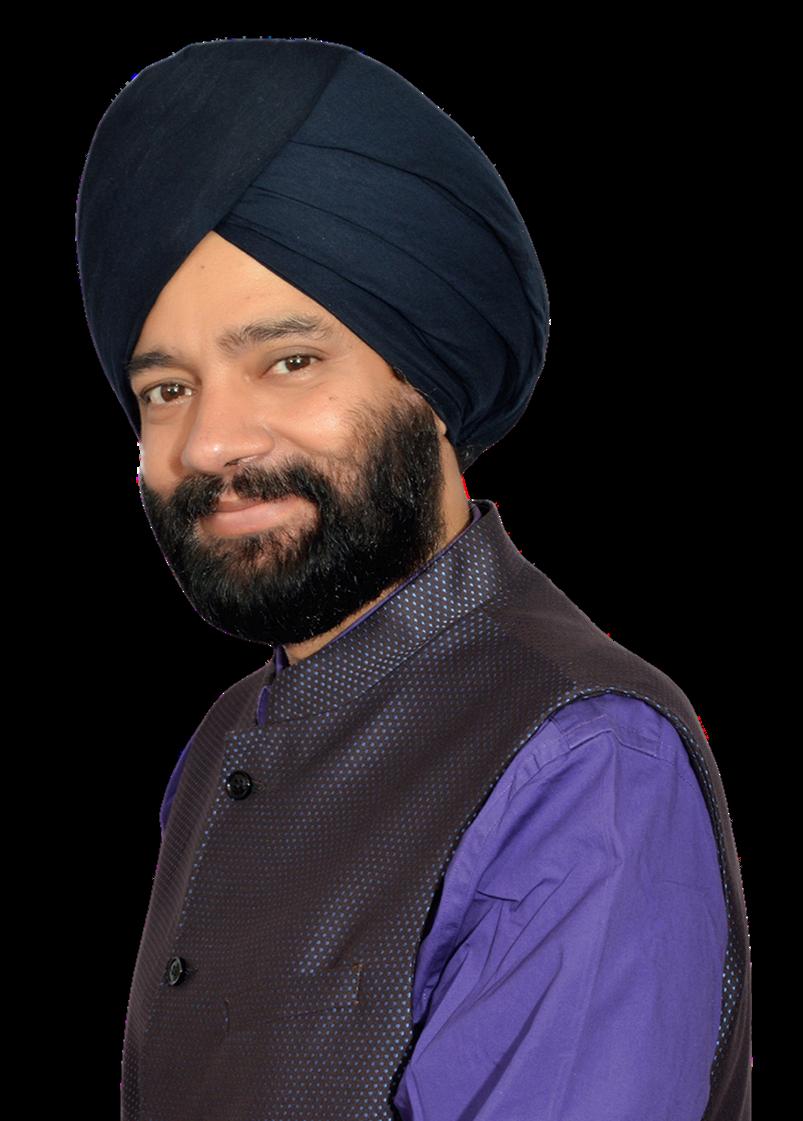
A few months later, Raj found a note on his desk “Sir, this feels like home now. ” Years later, Raj thought that ‘Region’ was the silent divider in the 1990s. In the 2020s, it’s ‘Pride’. Different times, same truth.
Replace ‘Region’ with ‘Pride’. The need remains To be seen, heard and valued Because belonging is timeless. Whether it’s 1990 or 2025.
Harjeet Khanduja is an international speaker, author, poet, influencer, inventor and an HR leader He is also known as RK Laxman of Business He is currently working as the Senior Vice President HR at Reliance Jio He has 4 published patents and authored 7 bestseller books Harjeet has been a LinkedIn Power Profile, TEDx speaker, Guest Faculty at IIM Ahmedabad, Board Member of Federation of World Academics, Global Thought Leader, Global Digital Ambassador. Harjeet features in Top 200 Global Leadership Voices and ET Top 20 HR Influencers
23


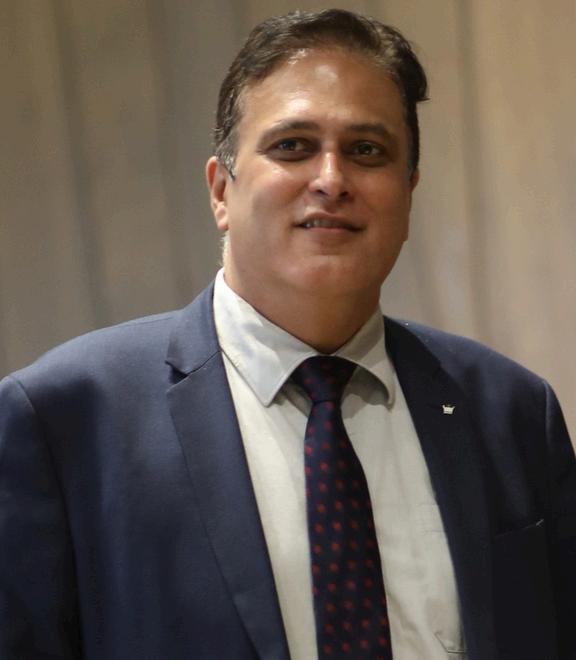
At Transformance Forums, our mission has always been clear to create meaningful platforms where industry leaders don't just gather, but connect, collaborate, and co-create the future of their functions
Each summit and award ceremony we curate is more than an event; it's a reflection of our unwavering belief that progress happens when the right minds meet with purpose Whether it's finance, HR, compliance, treasury, or digital transformation, the pace of change demands leaders who are not only visionary, but also bold, agile, and deeply human in their approach
The 2025 editions of our flagship summits are a celebration of that spirit of excellence earned, risks taken, and leadership that shapes industries from the inside out From boardrooms to business models, our awardees and speakers are redefining what it means to lead in a volatile, tech-driven, and people-first era
I extend my heartfelt gratitude to our partners, jury members, speakers, and attendees for being the pillars of this ecosystem
Your support continues to drive our purpose to fuel innovation by honoring leadership that matters
We are proud to stand alongside you in this journey of transformation
Here’s to building legacies that last together
With gratitude, Abidali Dossa
Founder, Transformance Forums

The 27th CFO Vision & Innovation Summit & Awards 2025 unfolded at the elegant Avasa Hotel. From boardroom brilliance to bold new strategies, the summit was a deep dive into the mindset of tomorrow’s CFO.

The 3rd Edition of the Great Indian CHRO Leaders Summit & Awards 2025 concluded with resounding success on June 12th at the Avasa Hotel, Hyderabad The prestigious gathering brought together India’s most visionary CHROs and HR leaders to discuss the evolving role of HR in driving organizational agility, innovation, and culture transformation.
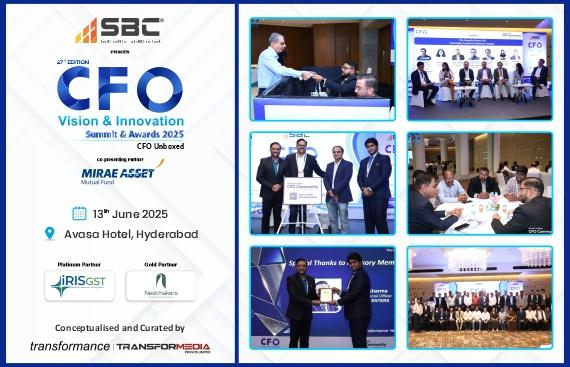

The 6th Edition of the India M&A Conclave and Awards on June 5th, and it was a lively affair! Industry titans gathered to unravel the mysteries and marvels of mergers and acquisitions in India, proving that even serious business can have its thrilling moments.
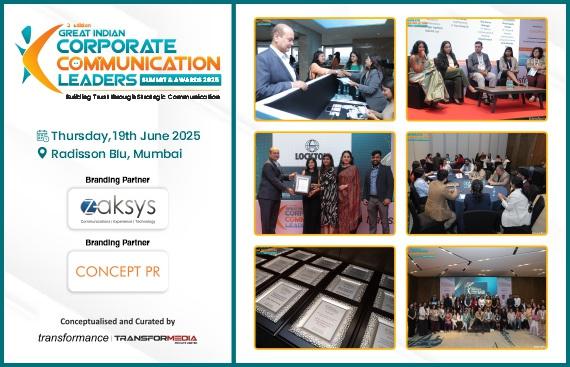
In the nation’s financial nerve center, the 28th CFO Vision & Innovation Summit & Awards 2025, hosted by Transformance Forums, brought together India’s leading financial minds on June 20th to explore how the CFO function is evolving from stewardship to strategic growth architecture.

The 3rd Great Indian Corporate Communication Leaders Summit & Awards 2025 turned Mumbai into a hub of innovation, insight, and impactful storytelling. Industry leaders gathered to explore the evolving landscape of communication from stakeholder trust and AI to internal engagement and digital branding

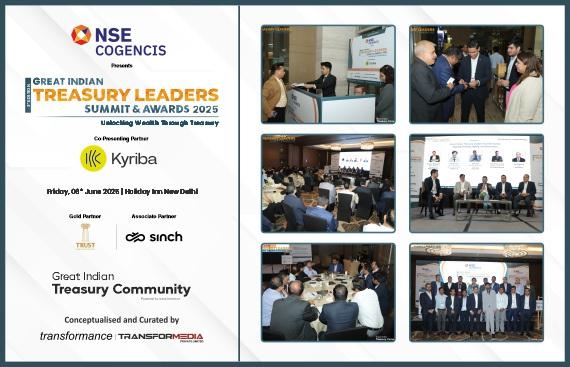
The 3rd edition of the Great Indian Treasury Summit & Awards 2025, hosted by Transformance Forums, successfully convened on 6th June 2025 at the Holiday Inn, New Delhi The summit brought together India’s most forwardthinking CFOs, treasury heads, and family office leaders to explore the dynamic shifts in treasury strategy amidst global economic challenges.


The CHRO Leader’s Vision for Agile Success
Suresh Anubolu, CHRO, Aragen Life Sciences
The CHRO Leader’s Vision for Agile Talent Management
Devi Prasad Dash, CHRO, Apollo Health and Lifestyle Limited
The CHRO Leader’s Vision for High-Performing Cross-Functional Teams
Sudipto Mandal, CHRO & Head HR, L&T Metro Rail (HYD) Ltd
The CHRO Leader’s Vision for Agile Cultural Transformation
Dr. Sujiv Nair, Global CHRO, Re Sustainability Limited
Maria Rajesh, CHRO, Embassy Group
Dr. Ankita Singh, Founder – HR Association of India; Chief People Officer & Board
Director, Relevance Lab
Harminder Bareja, CHRO, Ion Exchange
Their combined expertise ensured a rigorous and unbiased evaluation of nominations, spotlighting truly deserving leaders redefining HR practices.
Great Indian HR Leader in Employee Engagement
Reena Das, Keolis Hyderabad Mass Rapid Transit System Pvt. Ltd.
Great Indian Employer of the Year
Quest Retail Pvt. Ltd.
Great Indian HR Analytics & AI Solution of the Year
J K Fenner (India) Limited
Co-Presenting Partner: Janapriya Upscale
Gold Partners: Aparajitha, Nestmakers
Hospitality Partner: The Serai - Barefoot Resorts
Exhibit Partner: AscentHR
L&D Partner: Brainayan


Sumesh Balakrishnan, Cognida.ai – “Governance is no longer reactive—it’s a competitive advantage.”
Ramakant Tripathi, Srinivasa Farms – “Agility isn’t just a strategy; it’s a culture.”
Ajit Banerjee, Shriram Life Insurance – “Capital efficiency is the silent driver of transformation.”
The Growth-Driven CFO – Vision meets velocity in today’s financial leadership.
Customer-Facing Finance – Crafting value and experiences from the finance seat.
Unboxing Agility & Governance – Building trust in a digital-first economy.
India’s Economic Vision: Through the CFO Lens – Fireside reflections on purpose-led finance.
Roundtable Power Sessions – From de-risking growth to reinventing business models.
Presenting Partner: Steadfast Business Consulting (SBC)
Co-Presenting Partner: Mirae Asset Mutual Fund
Platinum Partner: IRIS GST
Gold Partner: Nestmakers Builders & Developers


Panels unpacked India’s top M&A success stories and post-merger integration strategies.
Fireside chats explored target spotting, HR’s role, and ESG-driven deal resilience.
Roundtables sparked insights on strategic targeting, M&A psychology, and private equity trends.
Sessions stressed the critical role of people and culture in deal success. Strong focus on sustainable, future-ready M&A practices.
Arpita Raj Singh, FINDI Group
Ankit Aggarwal, RATEGAIN TRAVEL TECHNOLOGIES LIMITED
Ashima Deepak Kaul, Rehau India
Gaurav Arora, Head of Investor Relations, CarDekho Group
Kapil Mantri, Executive Vice President & Head - Corporate Strategy and M&A, Jindal Steel & Power Ltd.
Anurag Pareek, Vice President & Head Legal (M&A, USA & LATAM), OYO
Anirban Roy, Chief of Strategy and M&A, Tech Mahindra Business Process Services
Ajay Bagri, Chief Financial Officer, SEIL Energy India Limited


Great Indian Corporate Communication Leader of the Year:
Dr. Alex Coutinho, Tech Mahindra BPS
Leader in Banking: Krunal Mehta, IDFC Bank
Employee Engagement – Internal Comms Campaign of the Year: Terumo India Pvt. Ltd
Dr. Alex Coutinho – Tech Mahindra BPS
Shilpashree Muniswamappa – Colgate-Palmolive
Shweta Munjal – Glenmark Pharmaceuticals
Priya Chandramohan – Boehringer Ingelheim
Puneet Gupta – INOX Air Products & INOX India Ltd
The round table discussions buzzed with energy, thoughtprovoking conversations, industry anecdotes, and plenty of laughter, creating an atmosphere of openness and collaboration. These sessions brought together peers from across sectors, strengthening the community of communication leaders.


Debnath Mukhopadhyay, SEROS – Risk Strategy Excellence
Hiren Padhya, Rushil Decor – Systems & Automation Leader
Vikram Oza, Jindal Worldwide – Finance Visionary Award
Gaurang Shah, Thermo Fisher Scientific – Governance & Compliance Leader
Naval Bajaj, Yokogawa – Innovation in Finance Award
Raman Chawla, Boston Ivy Healthcare – CFO of the Year
The Customer-Engaging CFO – Driving Loyalty Through Numbers
Fueling Growth Through Capital Strategy
Fireside Chat: India’s CFOs and the National Growth Story
Governance as a Strategic Advantage
Interactive Roundtables: Compliance Innovation, Tech Adoption & CFO-CIO Alignment
AWARD JURY
Mitanshu Shah, CFO, Arvind Smartspaces
Presenting Partner: NSE Cogencis
Knowledge Partner: InteliNovex Solutions
Platinum Partner: IRIS GST
ERP Partner: Saturo Technologies Pvt Ltd
Gold Partner: Nimble S2P


Treasury Strategy in a Volatile World
AI, ESG & Regulation – Redefining Treasury Purpose
Family Office Conversations – Agility & Risk Strategy in 2025
Fireside Chat: Building Long-Term Capital Strategies
Roundtables on Risk Visibility, Investment Efficiency & Digital Treasury
Rishi Malhotra, Park Group of Hospitals – Great Indian Treasury Leader in Healthcare
Diptangshu Chatterjee, Dalmia Bharat – Great Indian Finance Visionary of the Year
Presenting Partner: NSE Cogencis
Co-Presenting Partner: Kyriba
Gold Partner: TRUST Group
Associate Partner: Sinch
Amit Baraskar, Vice President & Head – Treasury, Thomas Cook India Ltd.


THESE AREN’T JUST RIDDLES THEY’RE REFLECTIONS OF IDENTITY, EQUITY, AND BELONGING. READY TO DECODE WHAT TRUE INCLUSION LOOKS LIKE BEYOND POLICIES AND INTO LIVED EXPERIENCE? ����

I welcome yo your friend.
I’m not a policy o , y What am I really?
➡ Hint: I go beyond invitations I'm about affirmation.
I don’t just count who’s in the room, I care whose voice breaks silence and gloom When every story gets space to grow, And authenticity is free to show What kind of workplace is this?
➡ Hint: It's not just diverse it's deeply human.
I’m not a celebration for just one month long, I’m built through actions, both quiet and strong. When policies protect and practices care, And people feel safe just being there
What kind of inclusion is this?
➡ Hint: It’s not performative it’s lived, deep, and consistent THE FIRST INDIVIDUAL TO EMAIL US THE RIGHT ANSWERS WILL WIN


Pride is more than a month of rainbow banners and social‐media posts; it is a call to action a reminder that visibility, while crucial, is only the starting line for authentic belonging. Too often, organizations assume that adding a Pride logo or publishing an inclusive statement is enough But if LGBTQIA+ team members cannot share their pronouns or feel hesitant to speak up, those symbols become superficial. In my work as a diversity advocate and speaker, I’ve seen time and again that the path from inclusion to belonging requires deeper commitment an ongoing, intentional effort to embed respect, understanding, and empowerment into the very fabric of our workplaces
Have you ever walked into a space where Pride decorations shone brightly, yet no one ever asked for your pronouns? This scenario isn’t hypothetical; it reflects a truth many LGBTQIA+ colleagues face. When organizations rely on visible symbols without coupling them with real dialogues, they risk sending the message: “We acknowledge you visually, but we don’t truly understand your lived experience.” To move beyond surface‐level support, we must confront this uncomfortable question: Are we celebrating diversity or merely checking a box?
Real change begins when leaders and peers recognize that inclusion is not a one‐time event; it’s a continuous mindset. It’s not enough to hang a Pride flag for a week We need to ask ourselves and our teams: Are we creating spaces where people feel safe to share personal truths? When silence surrounds pronouns or gender identity discussions, it’s a signal that deeper work is needed.
So, what does it look like when we shift from token gestures to meaningful action? First, normalize pronoun sharing. Encourage every email signature, internal directory listing, and meeting badge to include pronouns as a default option. This small but powerful step sends a clear message: “Your identity matters here, and we respect it even before we know you ” It’s not about forcing disclosure; it’s about signaling that every person ’ s identity is valid and honored.
It’s not enough to hang a Pride flag for a week. We need to ask ourselves and our teams: Are we creating spaces where people feel safe to share personal truths?

Next, cultivate psychological safety. Implement anonymous feedback channels whether through confidential surveys or digital suggestion boxes so LGBTQIA+ team members can voice concerns without fear of repercussion. More importantly, demonstrate transparency in how feedback is used When employees see tangible changes perhaps new restroom signage or adjustments to meeting norms they understand that their voices are not just heard but acted upon. This unwavering responsiveness is what transforms inclusion into belonging.
Belonging deepens when individuals feel empowered to share their stories Regular storytelling sessions integrated into town




ahalls, newsletters, or small‐group discussions provide platforms for LGBTQIA+ colleagues to speak openly These moments shouldn’t be token segments; they must be woven into the organizational rhythm When leadership attends, listens, and responds, it signals that these voices are central to shaping culture, not peripheral
Additionally, embedding mentorship and sponsorship programs specifically attuned to LGBTQIA+ experiences amplifies authentic voices Pairing employees with mentors who have navigated similar challenges offers guidance, support, and inspiration. When senior leaders actively sponsor LGBTQIA+ talent advocating for promotions, recommending high‐profile projects, and celebrating achievements they demonstrate a genuine investment in growth. This isn’t just a checkbox exercise; it’s a transformational practice that shows every person they are seen and valued at every level.
Belonging flourishes when policies and culture align. Conduct regular audits of benefits packages to ensure they cover gender‐affirming care, mental health support, and resources for chosen families Yet listing these offerings in a handbook is insufficient if the procedures to access them remain opaque. Create a centralized, easy‐to-navigate resource online or in print that details eligibility criteria, step-by-step instructions, and clear points of contact. When policies become accessible and transparent, LGBTQIA+ individuals feel empowered to use them without hesitation.
Accountability also means linking leadership
performance to inclusion outcomes. Incorporate metrics such as retention rates among LGBTQIA+ staff, participation in employee resource groups, and survey scores on belonging into performance reviews. When managers know their commitment to belonging is part of their evaluation, they prioritize inclusive behaviors: actively soliciting input, intervening against microaggressions, and championing equitable advancement opportunities. Clear expectations coupled with visible recognition for inclusive leadership reinforce a culture where belonging is everyone ’ s responsibility
Inclusion does not end at the office door. Partnering with local LGBTQIA+ organizations, sponsoring community events, and offering volunteer opportunities extend our commitment beyond our internal walls These collaborations connect employees with broader networks of support and advocacy, fostering solidarity and shared purpose. When we show up in our communities not just as benefactors, but as active participants we signal that our dedication to belonging is genuine, longterm, and far-reaching
This isn’t just a checkbox exercise; it’s a transformational practice that shows every person they are seen and valued at every level.
Annual Pride events are important, but belonging thrives when we incorporate celebratory rituals throughout the year. Observing Trans Day of Visibility, National Coming Out Day, or informal virtual coffee chats centered on shared experiences

keeps LGBTQIA+ stories in the collective consciousness. These rituals should be intentionally designed to be inclusive ensuring accessible venues, offering virtual participation options, and highlighting diverse identities.
When we celebrate milestones with sincerity, colleagues see that we honor every facet of the LGBTQIA+ community, not only during Pride month.
Belonging is an ongoing practice an intentional commitment to listening, adapting, and evolving It requires us to ask hard questions: Are we prioritizing authentic connections over performative gestures? Do our policies truly serve the people they intend to support?
Are our leaders held accountable for creating inclusive environments? When we move from merely displaying rainbow flags to embedding respect and empowerment into everyday actions, we create workplaces where LGBTQIA+ individuals don’t just exist they flourish
Pride is not a season; it is a lens through which we evaluate the health of our organizations every day. By investing in practices that normalize identity acknowledgment, cultivate psychological safety, elevate authentic voices, align policy with culture, and foster community partnerships, we transform inclusion into belonging
Together, let us commit to building spaces where every person is celebrated, every voice is heard, and every identity is honored today, tomorrow, and always





Inclusion, to me, has never been about ticking boxes or fulfilling targets. Whether during Pride Month or any time of the year, I don’t start by looking at people through the lens of gender, orientation, or background I start by seeing a person with potential, with ideas, with something valuable to contribute
That’s the lens I lead with And it’s the culture I hope my team experiences every day where inclusion is not a headline or an event, but something quietly embedded in how we treat one another. It’s not loud or performative; it’s intentional, consistent, and human.
As a leader, I often reflect on the kind of fairness I would expect for myself. I wouldn’t want to be chosen or overlooked because of my identity, my faith, or my background. I’d want to be seen for my work, my mindset, and the values I bring to the table. That’s the same lens I try to apply in every decision I make: one that is rooted in empathy and merit.
Empathy doesn’t mean lowering the expectations it means seeing the full picture It means asking: What does this person bring? What’s their story? What’s the potential waiting to be unlocked? What support they need and When we shift the focus from what’s on the surface to what’s possible, we naturally create a more equitable space for all.
I also believe that being an inclusive leader doesn’t mean having all the answers It means being open to learning every day, from every voice. I don’t claim to know every lived experience, and I don’t need to What matters is staying curious, listening with
intention, and allowing each story to broaden your perspective. That humility, I’ve found, is far more impactful than any checklist or training.
In my role leading talent acquisition, I carry that mindset into how we build teams. Diversity in hiring is not a metric for me it’s a matter of fairness. It’s about ensuring that talented people, regardless of where they come from, have access to opportunity and are selected because they’ve earned it. That’s how we build teams that are not only diverse, but strong, future-ready, and deeply respectful
And once someone becomes part of the team, they’re a colleague nothing more, nothing less. No spotlight. No isolation. Just inclusion, quietly practiced in everyday actions: in meetings, in recognition, in decision-making
We don’t need to make people feel different to include them In fact, the deepest form of inclusion is when people don’t feel the need to constantly explain who they are they just belong.
Pride Month gives us a moment to reflect, to honor, and to recommit. But the real work of inclusion happens the rest of the year when no one ’ s watching. It’s in the everyday moments: how we show up, how we lead, and how we create space for others to do the same.
For me, inclusion starts with empathy. And empathy starts with a simple, powerful truth: See people as people.
That’s how I lead and that’s how we build workplaces where everyone truly belongs.





